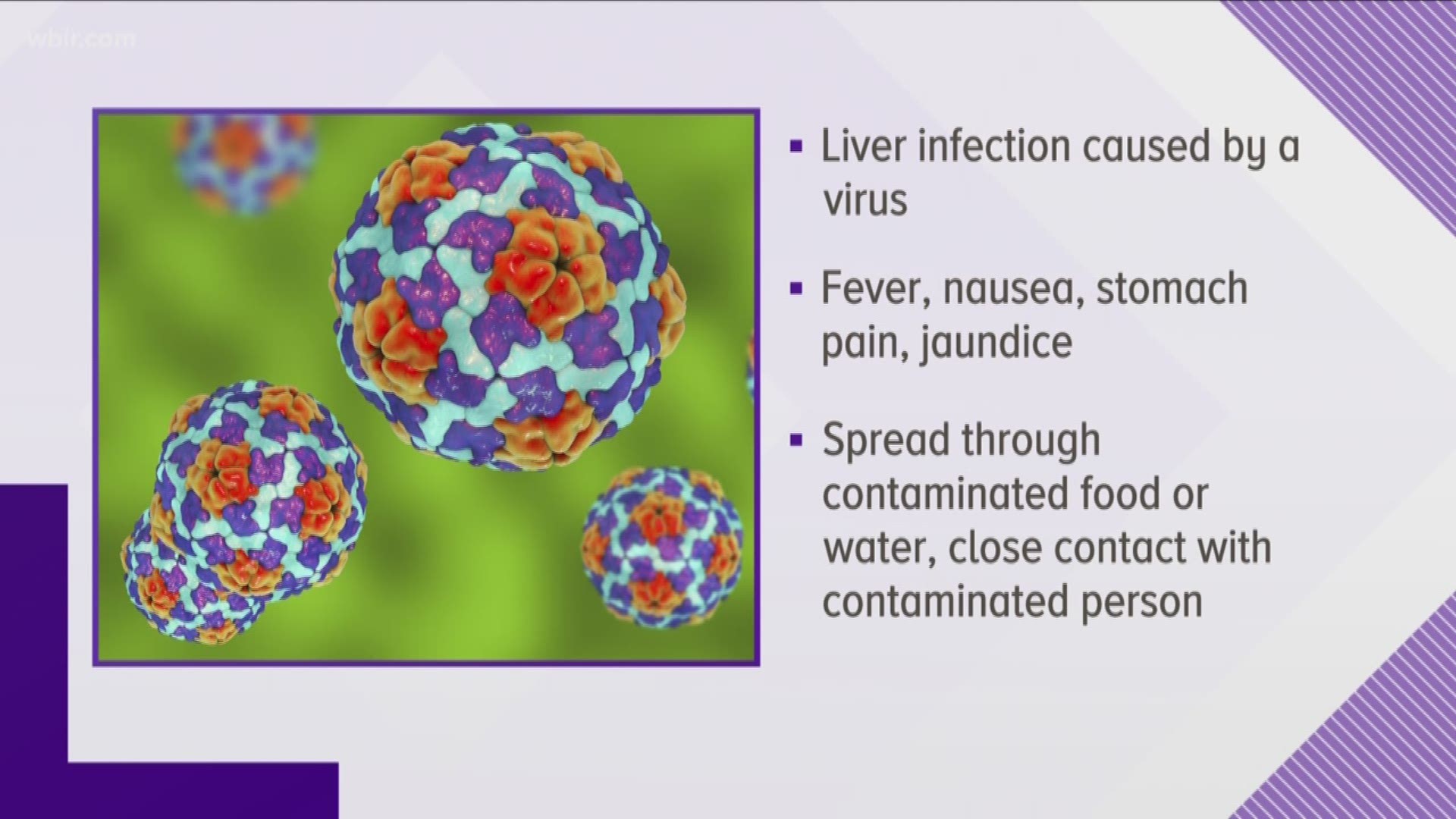Tennessee’s growing hepatitis A outbreak has caused its first death, state officials announced Wednesday.
Elizabeth Hart, a spokeswoman for Tennessee Department of Health, said the fatality occurred in East Tennessee but that she could not release any other information about the death.
The Hepatitis A outbreak has now spread to 449 cases statewide, including 134 cases in Nashville and another 201 in the surrounding 12 counties. Another 40 cases have been documented in Chattanooga, which is the state’s second most impacted city, according to state data.
Local officials have listed the Nashville count as even higher — 146 cases as of Friday.
“We are very saddened by the recent death associated with hepatitis A and realize unfortunately, we could see more deaths, as this continues to be a very serious outbreak with more than half of the people identified with the illness needing hospitalization,” said Dr. John Dreyzehner, Tennessee’s health commissioner.
“We will continue to respond aggressively, vaccinating high risk populations, educating and working with partners in and out of Tennessee to seek additional ways to stem this outbreak.”
Hepatitis A is a liver infection caused by a virus that causes fever, nausea, vomiting, abdominal pain, dark urine, and a yellowing of the eyes and skin known as jaundice. The infection is most commonly spread through contaminated food and water or close contact with an infected person, particularly anal intercourse. Vaccines have been standard for children for about a decade, but many adults were never immunized.
William Schaffner, a renown infectious disease specialist at Vanderbilt University Medical Center, told The Tennessean earlier this year that said the hepatitis A virus is particularly difficult to contain because infected people can be contagious for as long as a month before they become visibly sick.
Some people never become sick, but still spread the virus.
"It can be a matter of three to four weeks before you get sick, so nobody knows your infected, but you can still transmit the virus," Schaffner said. “That’s why hepatitis A is so very hard to figure out from a public health perspective. You’re always running behind the virus, your always trying to catch up.”
In recent years, large outbreaks have hit in California, Michigan and Kentucky, infecting hundreds and killing dozens. As of earlier this year, experts with the Centers of Disease Control and Prevention had determined that at least some of the Nashville outbreak appeared to have come from Louisville, where earlier this year officials were recording as many as four new infections every day.
Tennessee’s outbreak was announced in May, when officials in Nashville confirmed they had seen an alarming spike in hepatitis cases. Of the first 14 cases identified, 12 appeared to be linked, and the other two patients became infected while traveling outside of the city.
Since then, public officials have focused on promoting vaccinations among three target groups: recreational drug users, gay and bisexual men and homeless populations. Officials have done at least some vaccination outreach in homeless communities and gay bars in Nashville, and several options exist for at-risk people to be vaccinated for free, if necessary.
“More than 36,000 doses of hepatitis A vaccine have been provided to those most at risk in our state and I believe this massive effort has made a huge difference in reducing the number of hepatitis A cases,” said Dr. Tim Jones, a Health Department assistant commissioner in a news release.
“We urge anyone in the high-risk groups to get vaccinated as soon as possible, and will continue to work with state and local partners to provide hepatitis A vaccine to people at high risk for infection and educate people on how to prevent the spread of this disease.”
Brett Kelman is the health care reporter for The Tennessean. He can be reached at 615-259-8287 or at brett.kelman@tennessean.com. Follow him on Twitter at @brettkelman.

